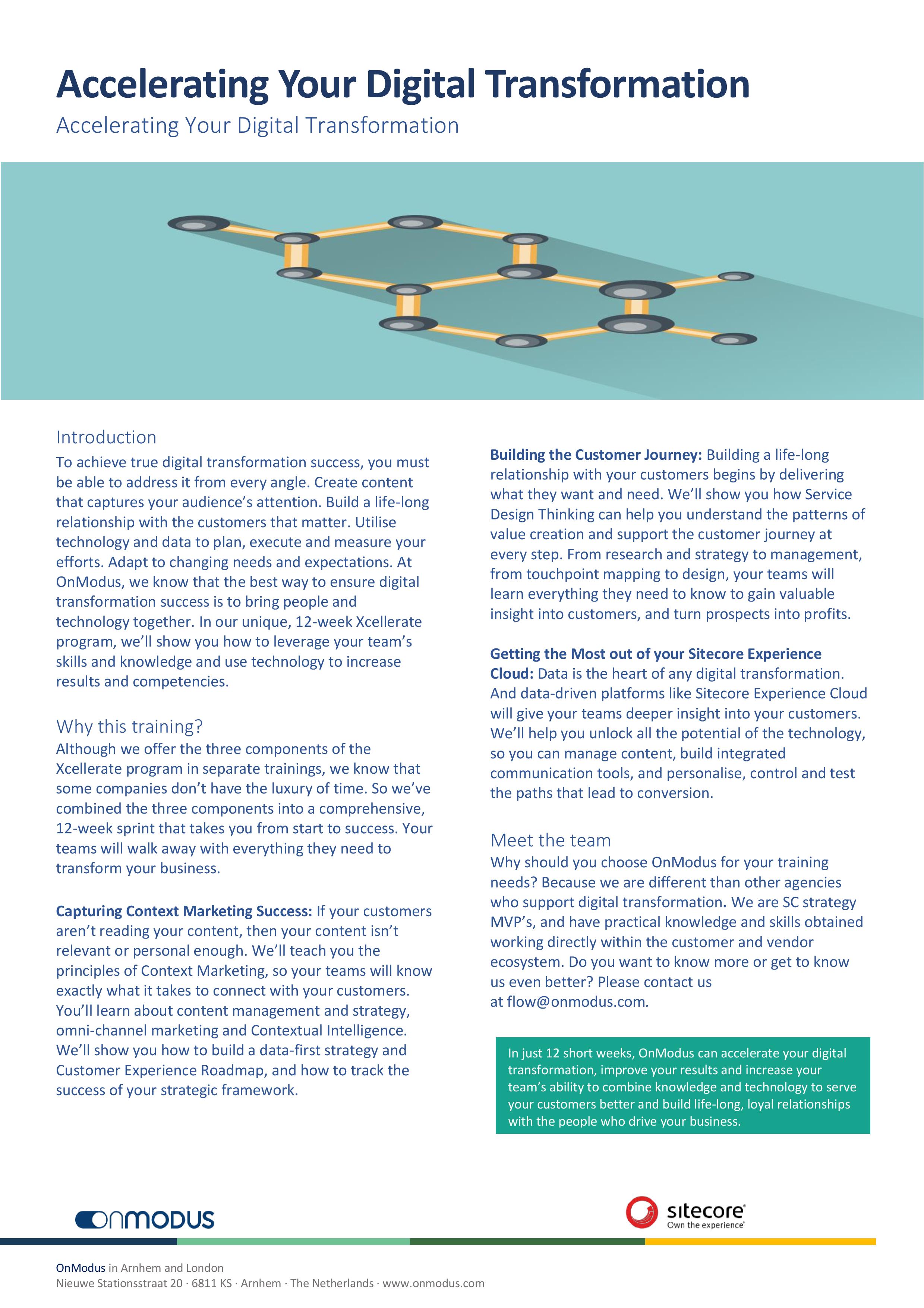In addition to technology and customer data collection, running a successful Customer Experience web platform depends heavily on content. But we notice that when clients build a Customer Experience platform, content is usually the last thing they think about, and they do not see it as a priority. This leads to content integration ‘as-is’ when the new platform goes live. There are three pain points that cause this. We will discuss all three here, and of course give a glimpse into the right solutions.
Pain Point 1: the missing plan
The first pain point we’d like to discuss is the lack of a content strategy. One of the things we hear is that there is a belief that there is enough content already available. But during our content workshop sessions, we expose the gap between the different content levels. There are three levels of content you need if you want to offer your customer a relevant experience during their customer journey:
Hero content: this is content that, in a short period of time, attracts leads that you can convert to sales or a service.
Hub content: this is all about storytelling. Mainly this content helps build a relationship with your customer. It shows them you understand what they are going through, and you’re the brand to help them.
Hygiene content: this is content that just needs to be there. Customers expect this content when they visit your platform or search for your brand.
And preferably, Hero and Hub content is available to speak to different audience segments and is usable on different channels.
Pain Point 2: the missing process
The second pain point is that there is no process in place to create, manage and process content throughout the organisation and across all its different stakeholders. An ideal process includes steps to:
Create, by working with an agile approach. With our clients, we see that different stakeholders are responsible for content within the customer journey. And these different stakeholders also use different copywriting agencies to (co)-write the content for the platform or campaign. This leads to inconsistency in wording and way of writing.
Manage, by selecting a person to be responsible for overseeing the bigger picture on a daily basis. For example, someone who checks and determines when campaign pages can be changed and turned into landing pages. Or recognises that is there already a strong landing page about a proposition that can be personalised and used during the campaign period. In this way, no pages are created that offer no value afterwards. Multiple pages with similar content do not build value, because all the traffic is cannibalised by the new, short-term campaign page.
Process, which involves deciding who needs to be involved when creating content. But even more importantly, who has the mandate to change or push the content when there is a crisis. Using the agile approach and decentralising responsibilities among different professionals, there always should be someone who can overrule the daily process.
Pain Point 3: the missing insight
The third pain point we see is that search (sub)keywords are not taken in account when creating content. What we often see happen is that content is created around the keywords for selling products or services, or for the campaign being run. This a great approach for your Hygiene and Hero levels of content. The objective of these levels of content is to share the product/service USPs, and the great offers you have on them.
But the objective of Hub content is different. Here, the objective should be to build a relationship with your customers and solve their needs or problems. The difference lies in the fact that these customers are mostly still in the awareness phase. They hear, read or see something, or just have a need or problem they want to solve. We see that in this phase, customers search with broader keywords and terms related to their quest for answers and offerings. Here, (sub)keywords need to more developed, more extensive, and more focussed on issues rather than offers.
Relief for your pain (points)
At OnModus, we have a painkiller to solve your content challenges. We call it ‘building the content train’, and it consists of four steps:
Content gap analysis
Keyword research
Content map building
Content roadmap setup (backlog)
And the great thing is, you can start this process in parallel with the technology process, so your content team is ready to integrate content when the technological building blocks are ready.
Hop on the train
Simply building a Customer Experience platform is not enough to offer a great customer experience and attract leads. Content is your platform’s key driver. But without the right amount and context, you are not going to achieve your objectives. Your Customer Experience software will just become a high-end web content management system.
To achieve your objectives of offering relevant communication to your customers and leads, and to build relevant customer datasets that offer even better next best actions, you need to hop on to the content train.



















